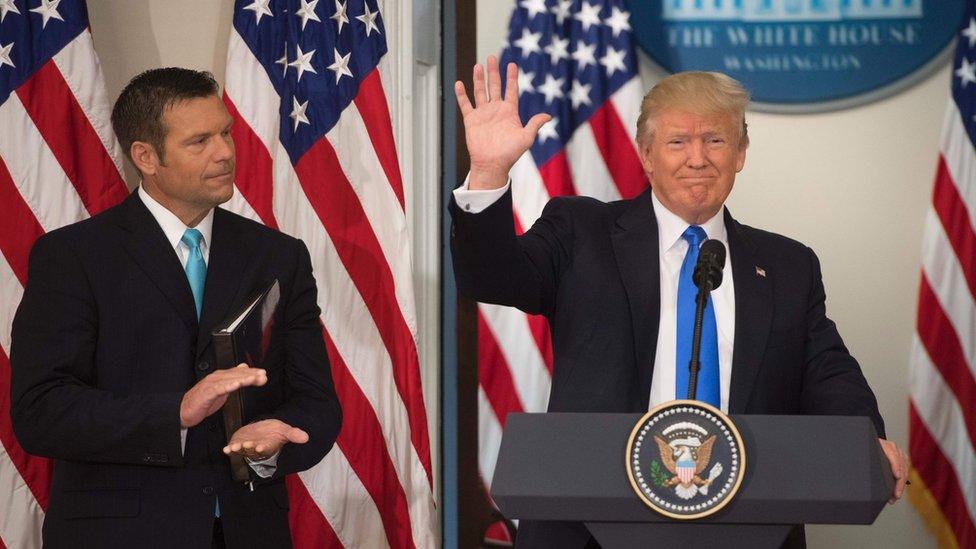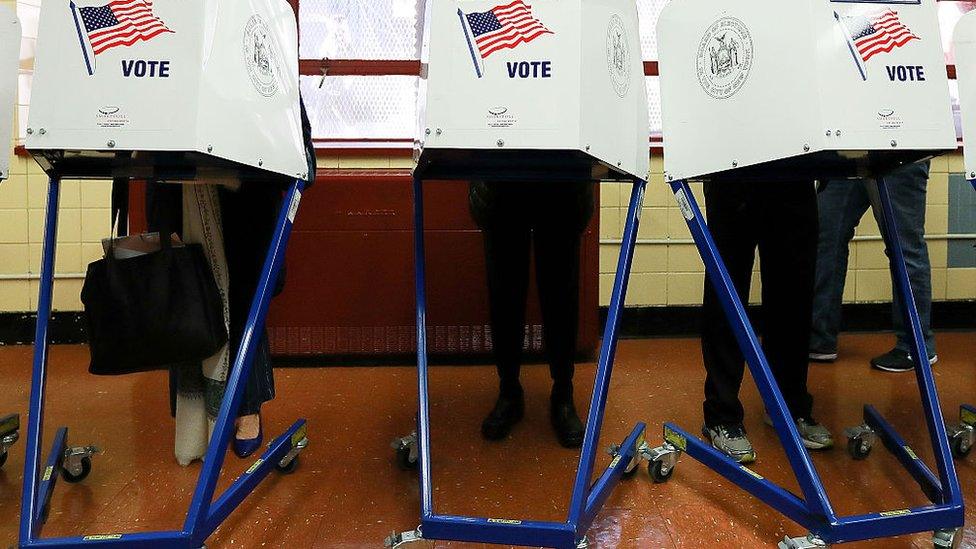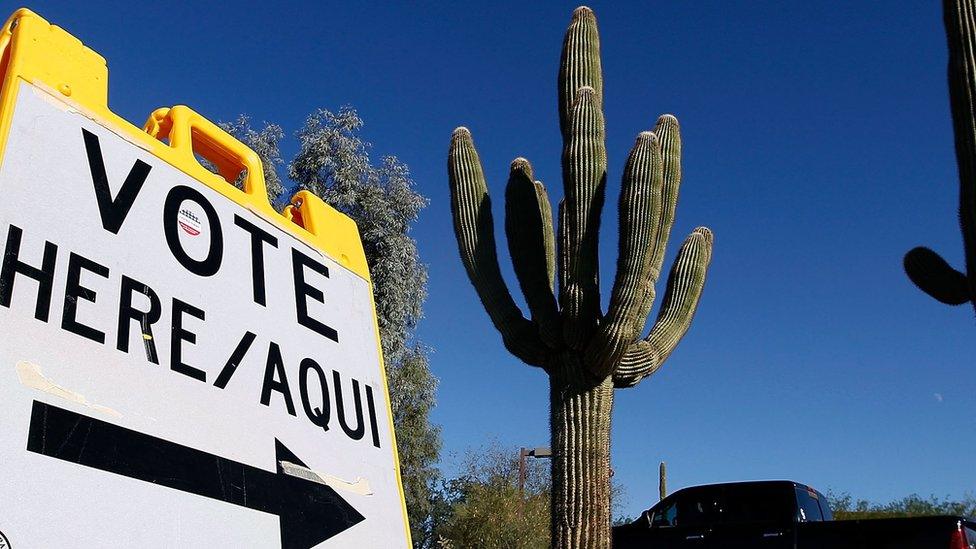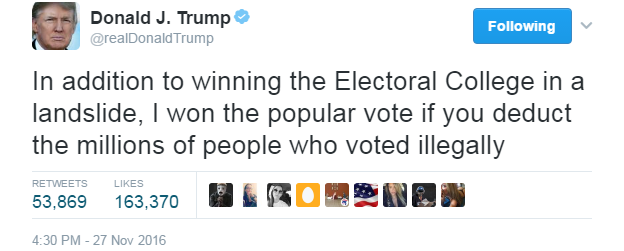Invite-only as Trump voter fraud commission meets
- Published

President Donald Trump and Kris Kobach (L) have both stoked claims that millions voted illegally, without offering any evidence
A commission on elections was created so American voters could be heard. But critics complain the first meeting was held in a secure building with invited guests only.
Vice-President Mike Pence spoke at the first meeting of the Presidential Advisory Commission on Election Integrity on Wednesday morning.
"We want to hear the voice of the American voter," he said. "Because that's really what this is all about."
That morning, members of the commission described their mandate: they'd examine registration and voting processes that were currently in place across the US. They said they would also look at vulnerabilities in the electoral system that could lead to improper voting.
President Donald Trump established the commission with an executive order in May, external and spoke briefly in the room on Wednesday morning, describing the meeting as "very, very important".
The presidential order stated that the commission would hold public meetings.

Last November's election results were certified by the Federal Election Commission
But although its first gathering was live-streamed, external, it took place on the third floor of a Washington DC secure facility that is off limits to members of the public.
The commission has a dozen members: voting experts as well as state and local officials, Republicans and Democrats, from across the US.
The vice-chairman of the commission, Kansas Secretary of State Kris Kobach, a Republican, is running for governor of his state.
As they met at the Eisenhower Executive Office Building, near the White House, they talked about the importance of voting.
One of the members, the Heritage Foundation's Hans von Spakovsky, said his mother grew up in Nazi Germany and taught him the value of the democratic process.
The room was filled with people who worked for the White House, ranging from senior aides (Sebastian Gorka and Omarosa Manigault were there) to interns.
Many of the interns had been invited at the last minute, one of them told me.
"I don't know how they selected them," a White House staffer said, quietly, while glancing at them.

Reporters watched the proceedings from behind a thick blue cord in the back of the room.
Altogether about 115 people were in the viewing areas. None of them appeared to be ordinary citizens, men and women who hadn't been screened by security or outfitted with security badges.
Critics of the administration said that holding the meeting behind closed doors violated democratic principles: transparency and openness.
Lawyers with the American Civil Liberties Union (ACLU) filed a lawsuit earlier thi, external, saying the commission was required to hold open meetings under the federal advisory committee act.

Even worse, said the critics, the commission was created in bad faith - largely because Mr Trump claimed he won the popular vote.
"For months and months he has been trying to sell this lie," said the ACLU's Sophia Lin Lakin.
Mr Kobach said this morning that the goal of the commission was to look at the electoral process and not to determine who'd won the most votes in 2016.
He also told me the meeting had been held in "broad daylight".
Anyway, said Mr Spakovsky, it was not a big deal.
"It was simply an organisational meeting," he told me afterwards.
Ms Lakin disagreed. She said that important issues were discussed.
Besides that, she said, "scrutiny" can only occur when members of the public are in the room - not simply watching online (as she and her colleagues did).
Those who observed the proceedings online could see the speakers - but only a glimpse of their surroundings.
During the meeting, Mr Kobach sat at a long table with a wooden gavel in front of him.
He and others discussed voting equipment, voter IDs and US census bureau surveys.
Many people wanted to attend the meeting but weren't allowed in. Yet most of those who were invited didn't seem all that interested - or at least not enough to stick around.
By the early afternoon Mr Gorka, Ms Manigault and most of the others had left - and dozens of chairs were empty.